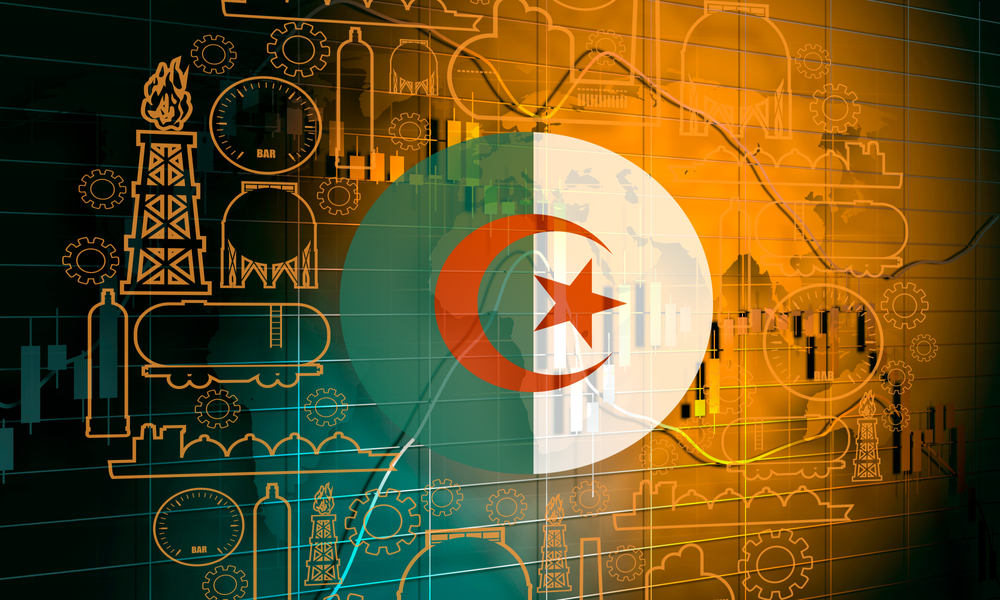Tunisian Media outlets have recently reported on speculations that Algeria intends to cut off natural gas supplies to Tunisia. This resulted in an official response from Tunisia’s government, with the Minister for Industry, Mining and Energy Naela Noweira making statements in which she denied that there were any intentions to cut Tunisia off from Algerian gas. However, there have been a number of indications that there are growing tensions in Algerian – Tunisian. Algeria has delayed the opening of its borders with Tunisia and has refused to increase gas exports to the country. It can be argued that Algeria through these actions may be expressing its dissatisfaction with Tunisian stances on a number of political issues, including Libya. Algerian gas supplies are a key component of bilateral relations, and some observers believe they could be used as a pressure point on Tunisia. Such an interpretation has been expressed in Tunisian media.
Despite official Tunisian denials that gas supplies from Algeria would be impacted, there have several manifestations of growing tensions between the two countries, including:
The delay in opening the Tunisian – Algerian border: Algerian tourists are an important lifeline to Tunisia’s tourism industry, with around two million Algerian visitors annually. The closure of these borders has resulted in a significant decline in revenue, considering that tourism from Libya has also significantly declined.
Algeria Refused to allocate more gas supplies to Tunisia: Algeria refused to increase Tunisia’s gas allocations, but it has maintained its supplies of the amount already under contract. Tunisian officials have explained that the only disagreement concerns Tunisian requests to increase the amounts stipulated in the contract.
The decline in bilateral official visits: Algerian President Abdlemeguid Taboun visited Tunisia last December, but in the context of a severe Covid outbreak, there have been no visits by officials from either side since then. President Taboun, stated on the 26th of May, during a visit to Rome, that Italy and Algeria agreed on the need to help Tunisia solve its current predicament, however, there have been no concrete indications of a change in Algeria’s policies towards Tunisia.
Escalating differences on regional issues: Algeria is said to be re-evaluating its stance towards Tunisia because of differences on developments in Libya, which Algeria regards as an essential component of its national security. Algeria and Tunisia have conflicting stances on a number of issues, such as whether or not to support the Fathy Bashaga government.
The centrality of gas supplies
The central issue between the two countries, however, remains the gas supplies. Algeria has lately doubled the price of its natural gas exports, which has created a crisis for Tunisia, as it depends on these supplies to produce 99% of its electricity. Tunisia imports 65% of its natural gas from Algeria, according to Tunisian officials. Locally produced gas only accounts for 35% of Tunisia’s total needs.
Tunisia’s demand for electricity doubles in the summer, as it consumed 4500 megawatts of electricity last summer, which means it needs additional gas supplies to meet this rise in demand. This has become problematic, in view of the current demand in Europe for Algeria’s natural gas as a result of the war in Ukraine, as well as the doubling in gas price by Algeria. Statements by Tunisian officials put the bill for Tunisia’s gas imports from Algeria at approximately 1 billion dollars, according to agreed upon prices between the two countries. If Algeria moves to implement the significantly rising market prices for gas, the bill could increase to 1.5 billion dollars.
Tunisia, at this time, has no alternative to Algerian gas, especially as there has been no new domestic discoveries of gas resources, and no clear plans to encourage new investors in that sector. Moreover, seeking to import gas from providers other than Algeria remain problematic due to the significant rise in the cost of transport, which has increased ten folds in the last two years. Currently, The Tunisian Electricity and Gas Company is receiving supplies from Algeria based on an agreement with the Algerian company Sonatrach, which was signed in 1997, then extended in 2000 for a further 7 years, ending in 2027.
It is worth noting that Tunisia receives gas from Algeria through 3 main channels: the contract with Sonatrach, another amount in return for the Algerian gas pipeline Transmed passing through Tunisian territory, and another amount outside contractual agreements which is subject to negotiations. It is this latter amount which Algeria said it could not provide this year, and which led to media speculation that Algeria refuses to supply Tunisia with natural gas.
The Transmed Algerian pipeline which passes through Tunisia became operational in 1984, extends over 2485 km, and transports 33.7 billion cubic feet of gas, to Tunisia, Italy, and Slovenia. As per the new agreement signed last April between the Italian company ENI and Sonatrach of Algeria, Italy will receive extra amounts of Algerian gas that could reach 9 billion cubic feet annually, increasing Algeria’s exports to Italy by 50%. The pipeline crosses Tunisia and the Mediterranean to Sicily, and the agreement between Algeria and Italy guarantees Tunisia some gains, as Tunisia obtains 25.5% of the total gas transported through the pipeline across its land.
In conclusion, while border crossings and tourism are important factors in bilateral relations, gas supplies remain the central defining factor for the status of relations between Algeria and Tunisia. The Transmed gas pipeline is the foundation of cost-benefit calculations for both sides. It will remain a strong foundation for good relations unless Algeria at some point decides to use it as a means to pressure Tunisia to change some of its foreign policies towards regional issues.

